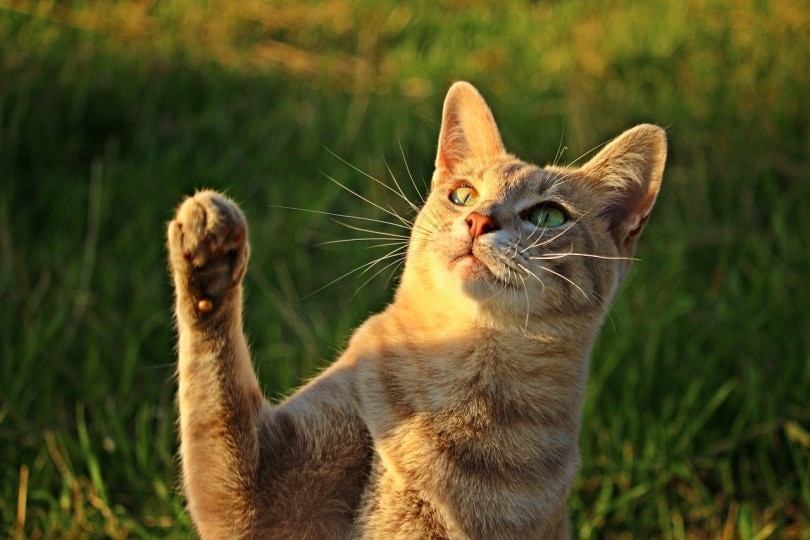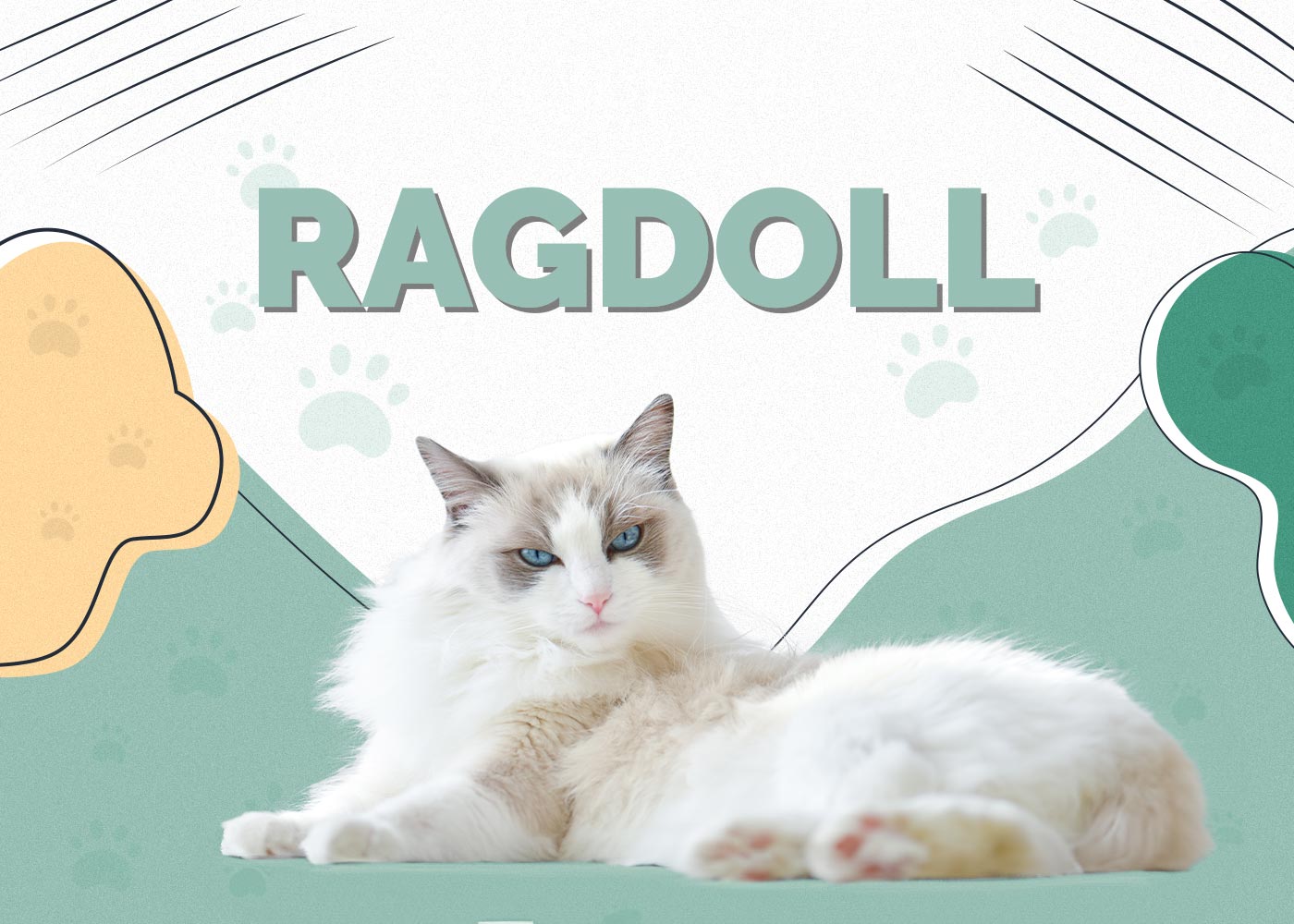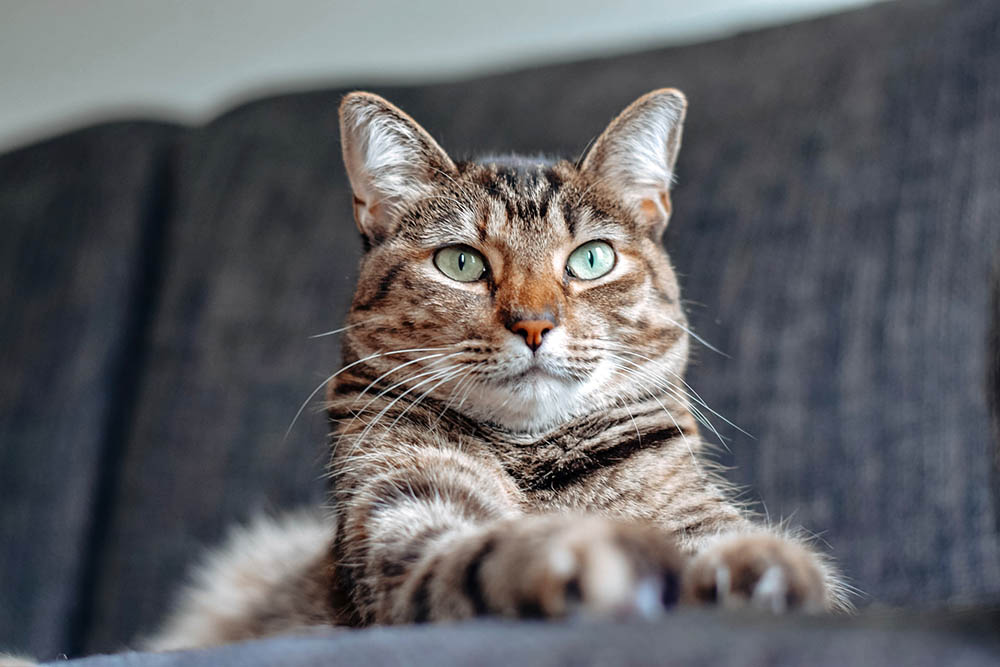Can Cats Eat Barbecue Sauce? Vet-Reviewed Safety Facts
Updated on
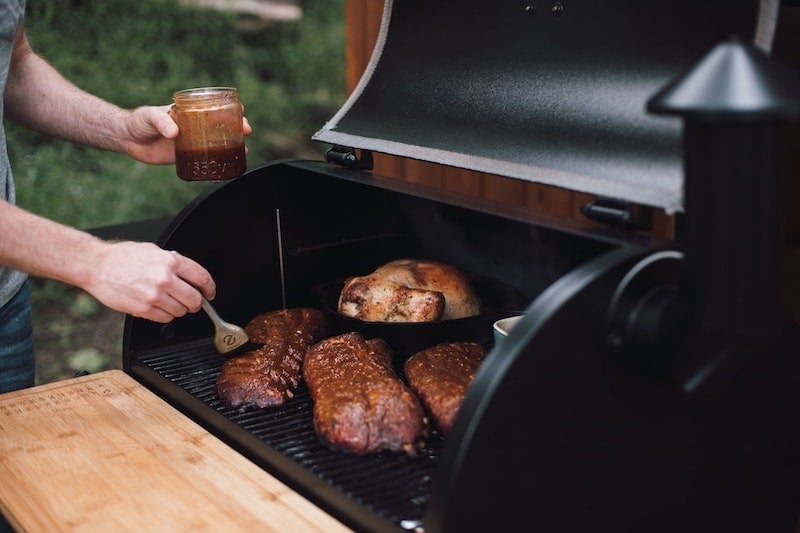
If you have ever been eating chicken or sausages with barbecue sauce (also referred to as BBQ sauce) on it, then you may have noticed that your cat stares longingly at it. The smell of barbecue sauce attracts cats, especially if it is on meat.
Barbeque sauces typically include ingredients that are NOT good for cats. Although some particular sauces may not be toxic, it is important to note that ingredients can vary quite a bit. Some barbeque sauce recipes include ingredients that are highly toxic to cats. In addition to its potentially toxic effects, consuming this popular sauce can cause your cat to experience minor digestive problems because it is not part of their normal diet.
In this article, we will give you all the answers you need as to whether barbecue sauce is safe for your cat!
Is Barbecue Sauce Safe for Cats?
Whether you are a cat owner looking to spice up your cat’s diet by adding barbecue sauce to their food, or whether you are wondering if you can feed your cat meat that is smothered in this sauce, it is best to consider the risks before feeding.
The main concern with barbeque sauce is that it isn’t an ingredient but rather a condiment that is made from several different ingredients.
- Vinegar
- Tomato paste
- Onion powder
- Garlic powder
- Liquid smoke
- Salt
- Spices (such as mustard or black pepper)
- Sweeteners (such as sugar, molasses, or xylitol)
Both onion and garlic can cause severe damage to the red blood cells in your cat. Garlic can be up to five times more toxic than onions, and the dried form (typically used in BBQ sauce) is more concentrated than the fresh one. As little as 5 grams of onion per kilogram of body weight of your cat is enough to cause toxicity; this equals only a tablespoon of onion for a 3-kilogram cat. This type of poisoning has been mostly linked to human baby foods fed to cats. To our knowledge, there are no reports of onion or garlic poisoning in cats due to barbeque sauce ingestion, but why take the risk?
The combination of vinegar and tomato paste makes barbecue sauce very acidic. This may not sit well in your cat’s stomach, which can cause digestive discomfort that is worsened by the spices found in this sauce.
When it comes to sweeteners, sugar and molasses will not harm your cat if they ingest it, but it’s not recommended. Although xylitol is highly poisonous to dogs, its toxicity in cats has not been proven. However, our advice would be to remain cautious and contact your vet if your cat eats barbeque sauce containing xylitol.
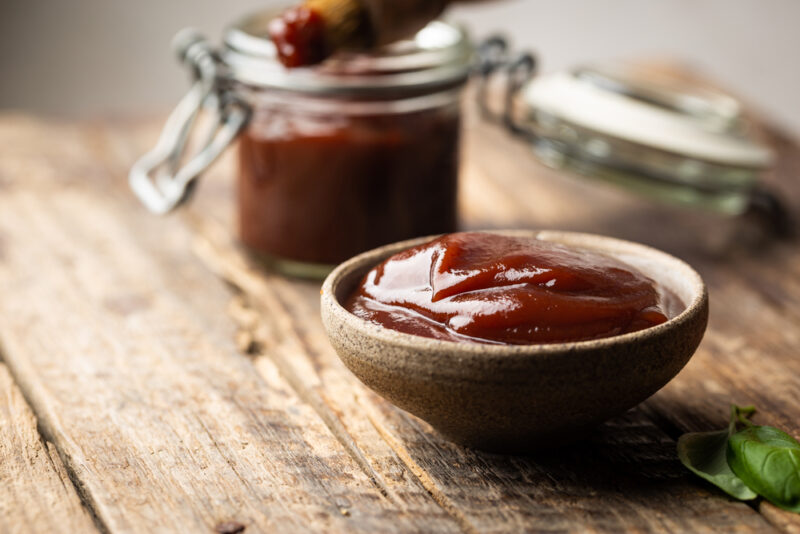
What Happens if a Cat Eats Barbecued Foods?
It is important that you do not let your cats eat food that contains barbecue sauce or seasoning. Despite it being highly tempting to share your sausages, burgers, and other scraps with your feline friend, it can harm them.
If the ingested amount is significant and you notice it quickly (within 1-2 hours), take your cat to the vet for potential stomach purging. Having the sauce’s ingredient list in hand will be very helpful. If a longer time has passed, you still need to contact your vet since tests and other treatments will be carried out to minimize the harm these ingredients could cause to your cat.
While it is okay to share some food items with your cats (as long as they are properly cooked and deboned), like chicken, turkey, salmon, and some vegetables, you should avoid feeding them barbequed foods cooked with barbeque sauce for the following reasons.
1. Carcinogenic Compounds
A lot has been said about the relationship between burnt foods and certain cancers in humans. The compounds that are normally described as carcinogenic (having the potential to cause cancer) in humans are acrylamide, polycyclic aromatic hydrocarbons (PAHs), and heterocyclic amines (HCAs). This relationship has not been proven in humans or pets. However, the carbonization on the outside of the burnt meat could cause digestive discomfort and other potential health issues for your cat.
2. Bones Can Cause Your Cat to Choke
Cats should never be given a cooked bone of any kind. Cooked chicken bones can be deadly to cats if they accidentally eat them. Cooked bones can splinter and perforate or get stuck in your cat’s intestines and stomach, along with being a choking hazard.
3. Undercooked Food Could Be Dangerous to Cats
Cats are prone to food poisoning from uncooked meat. This is because raw meat may be contaminated with bacteria that are harmful to cats (and humans too!), such as E.coli, Salmonella, and Listeria. This can lead to your cat developing digestive issues associated with food poisoning, such as profuse diarrhea and vomiting. Owners of cats on raw food diets source their ingredients well and may even use high-pressure pasteurization to prevent these problems.
Now that you know what you can safely feed your cat, it’s just as important to find a bowl that supports their health and well-being. With whisker-friendly bowls and a wide tray to catch any spills, our Hepper NomNom Cat Bowl is our favorite option.
Final Thoughts
In conclusion, many of the common ingredients used in barbeque sauces are not safe for cat consumption. Therefore, barbeque sauce isn’t recommended for your cat. Instead, you can purchase sauces that are made for cats. You can find these sauces online or at your local pet store. These pet-friendly sauces will have non-toxic ingredients that can be added to your cat’s daily diet safely.
Related Read:
Featured Image Credit: Unsplash




